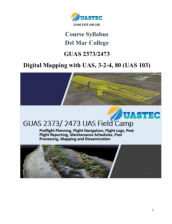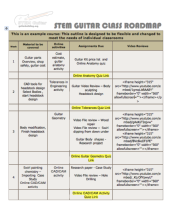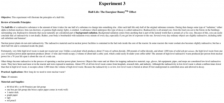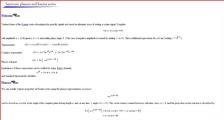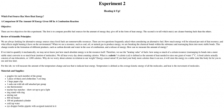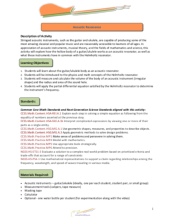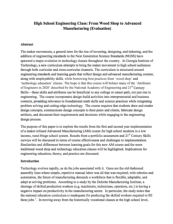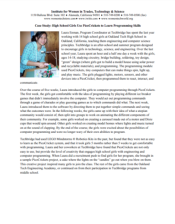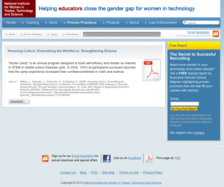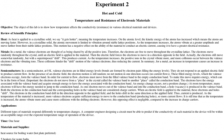Browse Resources
Science -- Instructional issues
Resources |
|---|
Course Description
This course, developed by the Unmanned Aircraft Systems Technology Education Consortium (UASTEC) at Del Mar College, covers planning and executing sUAS flight plans. "This course applies all of the theory and skills taught in the first two GUAS courses (101 and 102) through...
These resources, from the STEM Guitar Project, include an example syllabus, a grading rubric, and consent forms that are related to the STEM Guitar Building Institute. The syllabus is intended to be an example for a STEM guitar build course. The syllabus includes sections on materials covered,...
The Materials Science and Technology Teacher's Workshop (MAST) provides this activity to illustrate the principles of half-life. The laboratory is effective in showing the half life of radioactive substances. The application pertains to the length of storage necessary for radioactive materials. This...
This resource from Johns Hopkins University has audio and interactive components. Various forms of the Fourier series description for periodic signals are based on alternate ways of writing a cosine signal. This resource goes over Phasors, Phasor Sums, Harmonic Phasor Sums, Gibbs Effect, Windowing,...
The Materials Science and Technology Teacher's Workshop (MAST) provides this activity to compare the amount of energy given off in combustion reactions. The experiment has two different objectives. The first is the comparison of heat energy given off between different fuel sources and the second is...
This 5-page resource, from the STEM Guitar Project, is an activity on acoustic resonance. "... this activity will explore how the hollow body of a guitar/ukulele works as an acoustic resonator, as well as what these instruments have in common with the Helmholtz resonator. This activity has the...
This 21-page paper, provided by Georgia Tech Research Institute, discusses a new curriculum from Georgia Tech that attempts to bring the maker movement to high school students. "The curriculum is structured around engineering standards and learning goals that reflect design and advanced...
This 2-page case study, provided by the National Institute for Women in Trades, Technology and Science, discusses the program coordinator at Techbridge and her efforts to teach fourteen high school girls engineering and computer science principles. These students studied circuitry, bridge building,...
“Excite Camp” is an annual program designed to build self-efficacy and bolster an interest in STEM in middle school Hawaiian girls. In 2008, 100% of participants surveyed reported that the camp experience increased their confidence/interest in math and science.
The Materials Science and Technology Teacher's Workshop (MAST) provides this lesson plan which will help students understand how temperature affects the conductivity, or resistance, of a variety of electrical materials and devices. The basic scientific principles of heat, metals and semiconductors...
|
| ← PreviousNext → |
